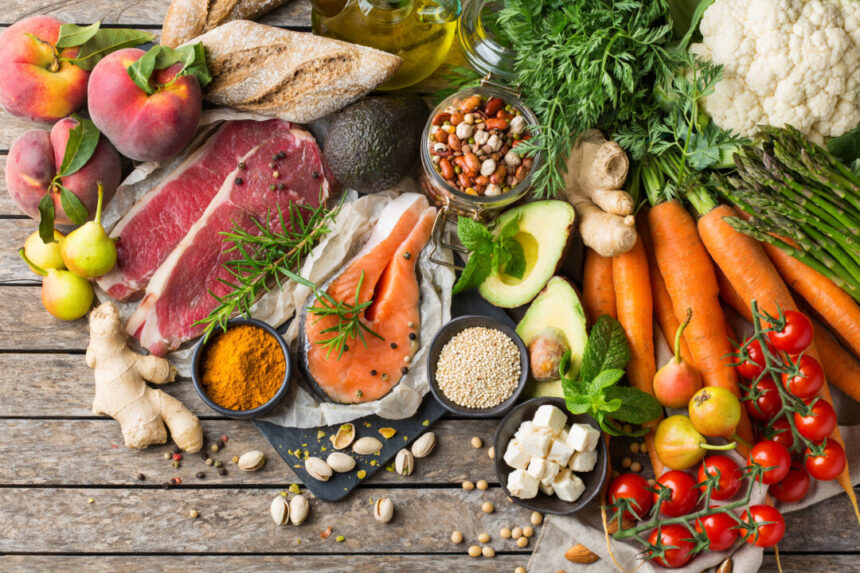According to research from the Johns Hopkins University (JHU) School of Medicine, men with early-stage prostate cancer may benefit from a balanced diet. This study suggests that a healthy diet can help prevent low-risk prostate cancer from progressing more aggressively during active surveillance, which involves careful monitoring of tumor growth as an alternative to immediate treatment.
The diet recommended in the study is based on the U.S. Department of Agriculture (USDA) Dietary Guidelines for Americans. It includes a variety of food groups such as fruits, vegetables, grains, dairy, and plant and animal protein sources.
Study co-senior author Bruce Trock, a professor at JHU, stated that many men diagnosed with low-grade prostate cancer are interested in making changes to reduce the risk of their tumor becoming more aggressive. The role of diet and nutrition is a commonly asked question in these cases.
Research has shown that diet can impact the risk and progression of prostate cancer. While a healthy diet has been associated with prostate cancer protection, some studies have linked the Western diet to an increased risk of prostate cancer.
Active Surveillance
When a man is diagnosed with prostate cancer, it is assigned a Grade Group based on the appearance of the cancer cells compared to normal prostate cells. Grade Groups range from 1 to 5, with lower numbers indicating less aggressive cancer that is less likely to spread. Active surveillance involves regular biopsies to monitor any changes in the cancer’s grade.
The recent study published in JAMA Oncology followed 886 men with Grade Group 1 prostate cancer enrolled in the active surveillance program at JHU. The study found that a healthier diet was associated with a lower risk of cancer progression to higher grades that require treatment.
Healthy Diet Lowered Cancer Risk Scores
The study measured the participants’ diet using a healthy eating index (HEI) score based on the USDA Dietary Guidelines for Americans. A higher HEI score was associated with a decreased risk of cancer progression to higher grades.
Dr. Christian Pavlovich, a professor at JHU, noted that each 12.5-point increase in the HEI score was linked to a 15 percent decrease in reclassification to Grade Group 2 and a 30 percent decrease in reclassification to Grade Group 3 or higher.
A Surprising Finding
Despite expectations, the study did not find a significant association between inflammation in the diet and prostate cancer progression. This was surprising given previous research linking inflammation to cancer development.
Researchers suggested that other mechanisms influenced by diet, such as DNA repair and hormone regulation, may play a more significant role in prostate cancer progression than inflammation.
Why the Diet Worked
According to Dr. Sandeep Nayak, a general and oncology surgeon, a healthy diet may support cell repair through nutrients like polyphenols found in fruits, vegetables, nuts, and herbs. These nutrients can slow down the growth of cancerous cells.
Additionally, certain foods like cruciferous vegetables contain compounds that regulate hormones associated with prostate cancer growth. These foods can reduce the cancer’s dependency on specific hormones, potentially supporting treatment outcomes.
USDA Diet Versus Western Diet
The USDA Dietary Guidelines for Americans recommend a balanced diet that includes fruits, vegetables, whole grains, lean proteins, and dairy. In contrast, the Western diet, high in fat, calories, and processed foods, has been linked to an increased risk of prostate cancer.
Dr. Francisco Contreras, an oncologist, supports the findings of the study and emphasizes the importance of dietary recommendations in cancer prevention and treatment. He suggests a diet rich in fruits, vegetables, whole grains, and healthy fats to improve prognosis and overall health.
By following a healthy diet and making lifestyle changes, individuals with prostate cancer may reduce the risk of disease progression and improve their quality of life.





